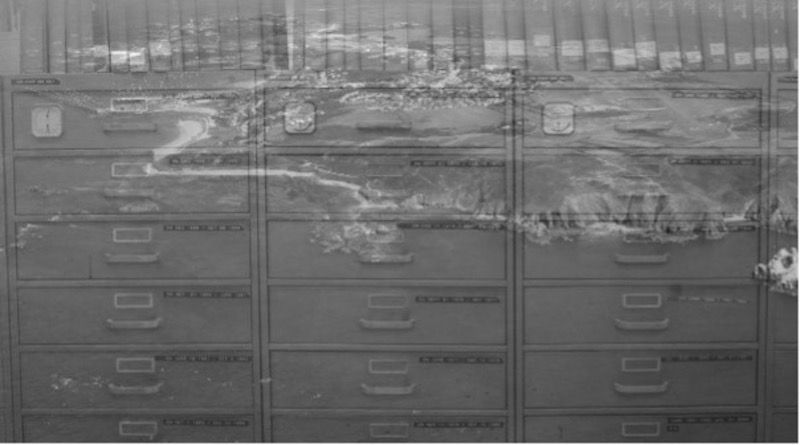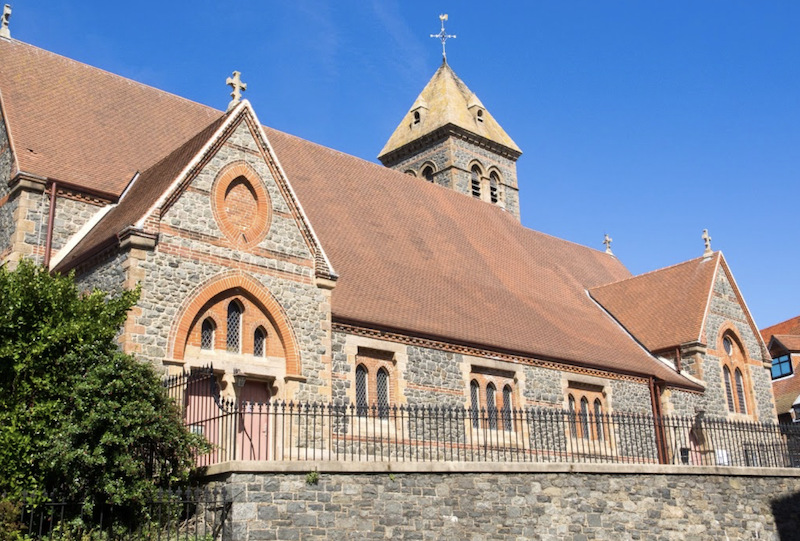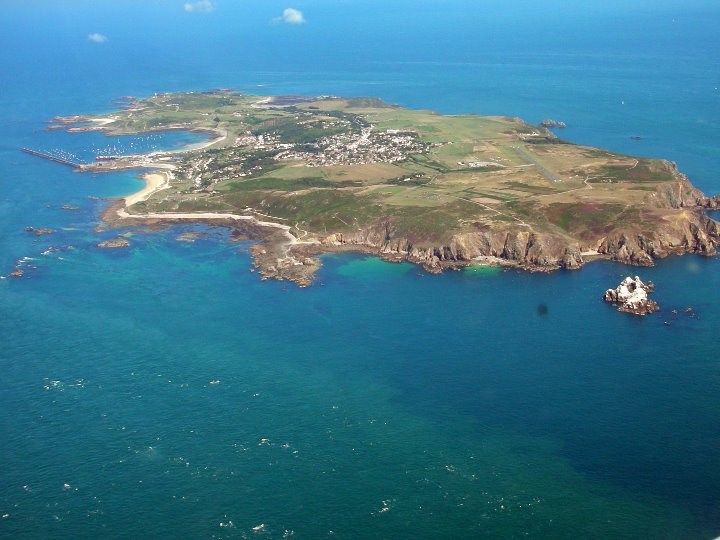

A digital copy of a harrowing British intelligence report on the crimes committed against Jewish and Russian prisoners in Alderney during the Second World War is to be made available at Guernsey Archive.
The ‘Pantcheff report’ was a 1945 investigation by Captain Theodore Pantcheff into mass brutality in the camps, recording the deaths of at least 337 people sent to the island by the German forces.
However, the report notes that it "cannot definitely be stated that the total figure of 337 graves necessarily represents the total number of foreigners dead on the island”.
Later, in a book detailing his experiences, Mr Pantcheff acknowledged this tally was a "minimum conclusion."

Pictured: A digital version of the report has now been made available to Guernsey Archive.
It is believed that more than 6,000 people of 27 nationalities were taken to Alderney during the period.
During their time there, Pantcheff’s interviews with multiple witnesses illustrated a regime of brutality, “arbitrary beatings,” starvation and systemic death.
In a particularly harrowing note illustrating the treatment of workers, Pantcheff outlined how they "were beaten for the most trivial offences, against the harsh regulations, such as failure to execute a drill movement properly, or endeavouring to acquire extra food from the garbage pail.
“On occasions workers were beaten for no reason at all. The beatings were carried out by uniformed German OT NCOs and officers, on all parts of the victims’ body, with the fist, foot, stick, piece of hose or other weapon.”
The report recently came to prominence after it was highlighted in an investigation by the Sunday Times following an article by Jewish heritage trail JTrails founder, Marcus Roberts, published by AYNews, which claimed it had been ‘long-buried’ for many years in Britain.
However, it has been pointed out by archaeologist and International Holocaust Remembrance Alliance member Dr Gilly Carr, that the document has in fact “been open access in London for over a decade.”
Despite this, the re-emergence of the report has bolstered the idea of a memorial for the victims on the island - something which Mr Roberts highlights in his own analysis of the report.
“It further highlights and strengthens the argument for an official Holocaust Memorial on Alderney, as it is not just a question of memory, but as a tacit admission to a miscarriage of justice by the British authorities in their failure to prosecute Holocaust crimes on British soil,” he noted.
“The Pantcheff Report also gives a compelling answer as to the best site for the memorial — from the former Jewish prisoners themselves.
“When Captain Kent visited the ‘Russian Cemetery’ he noted that, ‘on the west side immediately after entering, there was an area of rough grass about 5 yards by 17 yards, where weeds were flourishing together with a few garden flowers.
“Richter explained that this was part of the ground cultivate by the Jewish workers in memory of their friends who are buried immediately adjacent.’ This must be the site of an official Holocaust Memorial.”

Pictured: Mr Roberts said that Alderney should have an official Holocaust Memorial site.
Following national press coverage, the Ststes of Alderney said that further work will take place with Guernsey External Affairs to open any remaining UK Government reports to researchers, along with documents and materials held in the Bailiwick.
After nationals described the report as "new", Lord Pickles, the UK’s special envoy for post-Holocaust issues, pointed out that the report was actually declassified in 1993.
Bill Abel, Chairman of Alderney’s Policy and Finance Committee, said: “There is some uncertainty as to the actual numbers of victims at the hands of the Nazis in Alderney but in my view it is simply a matter of showing great respect for all of the dead and those who suffered so cruelly.
“To that end, we will work with those people and organisations that wish, as we do, to present the truth of those dark years and find ways to mark our respect. After all, these were war crimes of international significance that took place on our island."
In a letter to Alderney’s President, William Tate, Lord Pickles wrote: “I am committed to safeguarding the historical record. I believe the best way to do this is to be open, accurate and transparent. There is an abundance of evidence in the public domain that has allowed experts to discuss what happened on Alderney, providing ample proof of the crimes committed by the Nazis on British soil.
“In a world where Holocaust denial, distortion and revisionism is on the increase, we have a duty to provide the unvarnished facts. I believe the best way forward is to ensure that all documents, photographs and other materials relating to this dark period of history are published.”
The Hammond Memorial on Alderney has five main plaques in Russian, Hebrew, Polish, French and Spanish, built by local residents to commemorate the slaves and forced labourers brought to the Island who subsequently died from maltreatment.
Comments
Comments on this story express the views of the commentator only, not Bailiwick Publishing. We are unable to guarantee the accuracy of any of those comments.